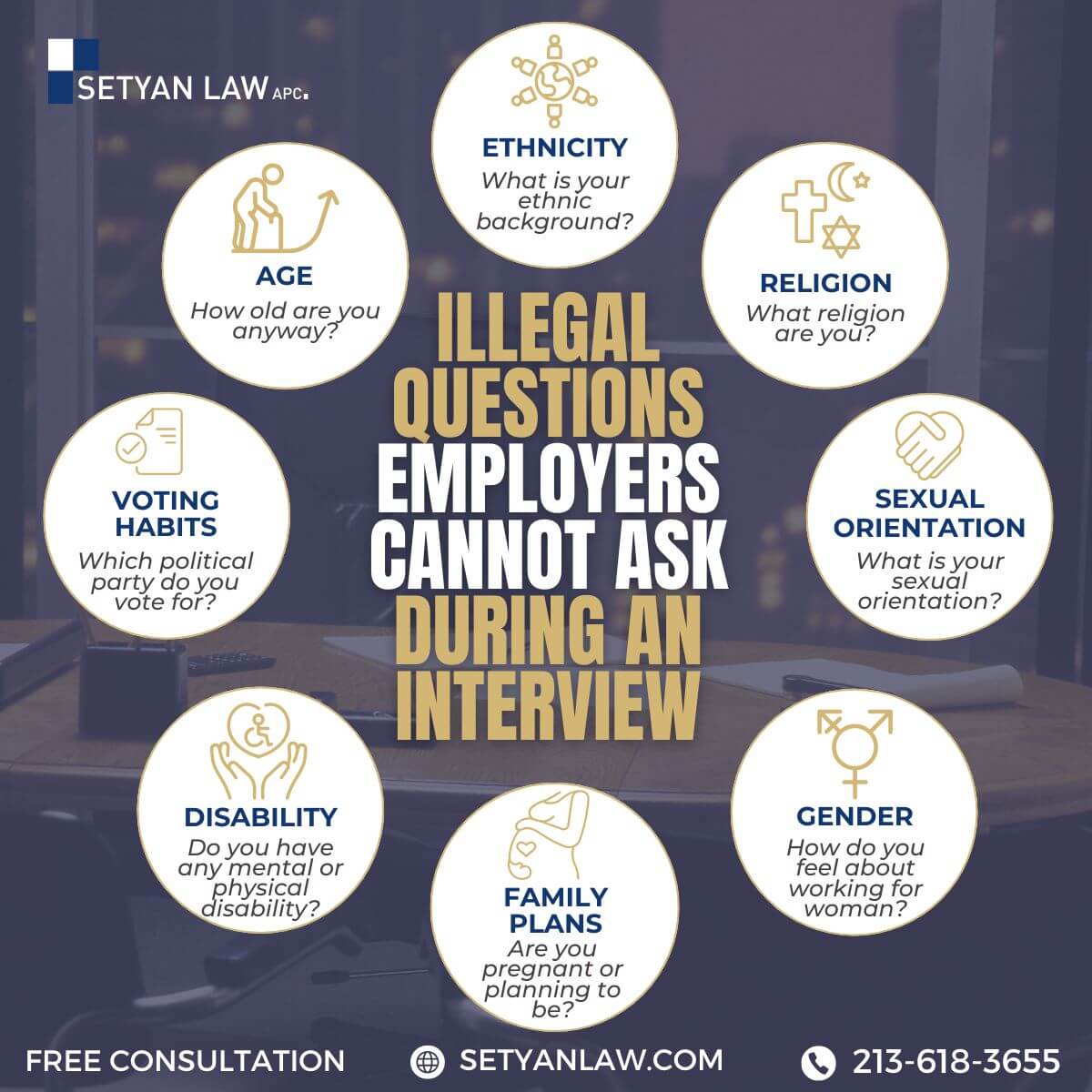Updated April 11, 2025
The 10 Most Common Types of Labor Code Violations
Labor code violations are a critical concern for employees across various industries. Understanding these violations is essential for workers to protect their rights and ensure fair treatment in the workplace. This article delves into the most prevalent types of labor code violations, offering insights and guidance for employees who may be affected.
1. Wage and Hour Violations
Wage and hour violations remain one of the most pervasive issues in the workforce. These pay violations can significantly impact an employee’s financial stability and overall well-being.
Minimum Wage Violations
Employers are required to pay their employees at least the minimum wage set by state and federal laws. As of 2024, California’s minimum wage is $16.00 per hour, but some cities have even higher rates. If an employee is paid below this threshold, they may have grounds for legal action.
Overtime Pay Issues
In California, employees are entitled to receive overtime pay at a rate of one and a half times their regular hourly wage for hours worked beyond eight in a single day or 40 in a week. Failure to pay this overtime can result in significant penalties for employers.
Misclassification of Employees
Another common violation occurs when employers misclassify workers as independent contractors instead of employees. This misclassification can deny workers critical benefits, including overtime pay and health insurance. Workers classified incorrectly may be entitled to back pay and benefits they were denied.
2. Benefits and Leave Violations
Employers must adhere to various laws regarding employee benefits and leave entitlements. Violations in this area can lead to significant consequences for workers.
Family and Medical Leave Denial
Employees are entitled to take time off for family and medical reasons under the Family and Medical Leave Act (FMLA). If an employer denies this leave without justification, they may be violating federal law.
Paid Sick Leave Violations
California law mandates that employees accrue paid sick leave. Employers who fail to provide this benefit or retaliate against employees for taking sick leave can face legal repercussions.
Pregnancy Disability Leave Issues
Pregnant employees have specific rights regarding disability leave. Employers must comply with regulations surrounding this leave, and failure to do so can result in significant penalties.
3. Wrongful Termination
Wrongful termination occurs when an employee is fired for illegal reasons, such as discrimination or retaliation for reporting workplace violations. In California, employees are generally considered at-will, meaning they can be terminated for almost any reason. However, if the reason is illegal, the employee may have a case for wrongful termination.
4. Breach of Contract
Employment contracts outline the terms and conditions of employment. A breach occurs when an employer fails to adhere to these terms, such as not paying agreed-upon wages or altering job responsibilities without consent. Employees can seek legal recourse for breaches of contract through wage claims or civil lawsuits.
5. Sexual Harassment
Sexual harassment is a serious violation of labor laws that creates a hostile work environment. This can include unwelcome advances, inappropriate comments, or any behavior of a sexual nature that affects an employee’s job performance. Victims of sexual harassment can file complaints with the appropriate authorities or pursue legal action if necessary.
6. Workplace Retaliation
Retaliation occurs when an employer takes adverse action against an employee for engaging in legally protected activities, such as reporting discrimination or harassment. This can manifest as termination, demotion, or other punitive measures. Employees facing retaliation have the right to report these actions and seek legal assistance.
7. Workplace Discrimination
Discrimination based on race, gender, age, religion, or other protected categories is illegal. Employers must provide equal opportunities in hiring, promotions, and other employment practices. Victims of workplace discrimination can file complaints with the Equal Employment Opportunity Commission (EEOC) or pursue civil lawsuits.
8. Health and Safety Violations
Employers are required to maintain a safe working environment under the Occupational Safety and Health Administration (OSHA) regulations. Violations can include failing to provide necessary safety equipment or exposing employees to hazardous conditions. Employees have the right to report unsafe working conditions and seek compensation for any injuries sustained due to employer negligence.
9. Keeping Accurate Records
Accurate record-keeping is essential for compliance with labor laws. Employers are required to maintain detailed records of hours worked and wages paid. Failure to do so can lead to violations and make it difficult for employees to prove their claims in disputes.
10. Illegal Wage Deductions and Employee Misclassification
Employers may be allowed to make certain deductions from an employee’s paycheck, but these deductions cannot reduce the employee’s earnings below the minimum wage. Deductions for damaged property, uniforms, or other expenses must be discussed with the employee beforehand. If these deductions are illegal, employees can seek restitution.
Conclusion
Understanding labor code violations is essential for employees to protect their rights and ensure fair treatment in the workplace. If you suspect that your rights have been violated, it’s crucial to take action. Document any incidents, report issues to your HR department, and consider seeking legal advice to explore your options. Remember, you have the right to a safe and equitable work environment, and there are resources available to help you assert those rights. If you need assistance, do not hesitate to contact a qualified employment attorney who can guide you through the process.
Wronged by an employer or coworker? Call Setyan Law at (213)-618-3655 today.






